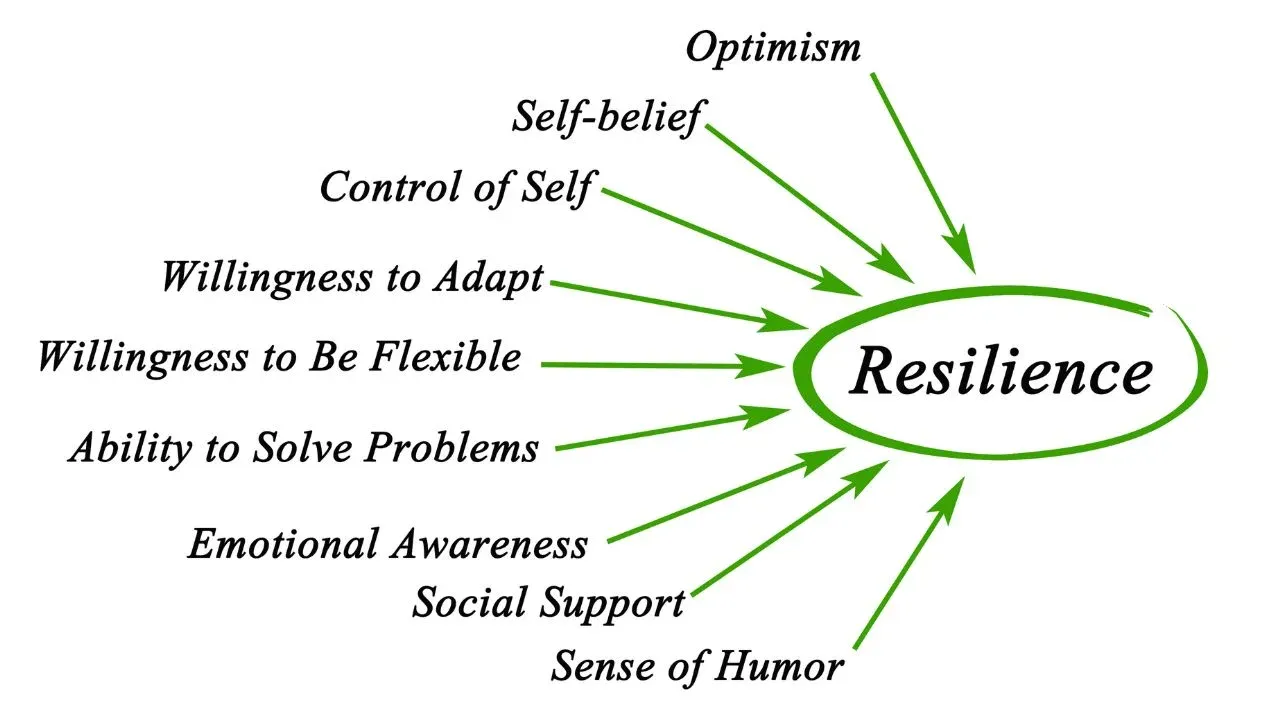In today's rapidly changing job market, it's essential to have a diverse set of skills that can help you stand out from the competition. While technical skills are important, employers are increasingly looking for candidates with strong soft skills. Soft skills are personal attributes that allow you to work effectively with others and navigate challenging situations.
In this blog, we'll explore the top 10 in-demand soft skills for 2024. These skills are expected to be highly sought after by employers across various industries, and they can help you advance your career and achieve your goals. Whether you're a recent graduate looking for your first job or a seasoned professional seeking to stay relevant in your field, these soft skills can help you succeed.
We'll discuss each of these skills in detail, including what they are, why they're important, and how you can develop them. By the end of this blog, you'll have a better understanding of what soft skills are in high demand and how you can cultivate them to enhance your career prospects.
So let's dive in and explore the top 10 in-demand soft skills for 2023!
What are Soft Skills?
First, let's start with understanding what soft skills are. Soft skills are a set of personal attributes and qualities that enable you to interact effectively and harmoniously with others in the workplace. These skills are intangible and difficult to quantify but are essential for success in any job.
Importance Of Soft Skills
Soft skills, also known as power skills, common skills, or core skills. Soft skills, such as communication, problem-solving, and collaboration, are key to success in any profession. They are the skills that help us better understand and interact with those around us, both in the workplace and in our personal lives. In addition, having strong soft skills can help us to be more organized, efficient, and productive. It is important to recognize the value of these skills and work to improve them.
In today's digital age, most hard skills can be learned through online courses and tutorials. However, soft skills require practice and experience to develop. It takes time to hone one's communication or leadership skills, and it cannot be achieved through a simple tutorial. Therefore, job seekers need to showcase their soft skills in their resumes, cover letters, and interviews.
Soft skills are also essential for career advancement. Employees who possess excellent soft skills are more likely to be promoted to leadership positions, as they can effectively communicate and collaborate with their team members. Soft skills also help build stronger relationships with colleagues, clients, and managers, leading to a better work environment and increased job satisfaction.
- So, while it's essential to develop hard skills, it's equally important to invest time and effort in developing your soft skills to increase your chances of success in today's job market.
Developing soft skills is an ongoing process that requires practice, feedback, and self-reflection. It is essential to recognize the importance of soft skills and invest in their development to achieve success in any career.
What soft skills are employers looking for?
As the job market evolves and technology advances, it can be challenging to keep up with the latest quantitative skills. However, developing soft skills is always a valuable investment for your career, as they apply to any industry and can help you navigate a variety of situations.
Here are 10 essential soft skills that can help you succeed in any industry.
1. Adaptability
The ability to adapt to new situations and changes in the workplace is crucial in the fast-paced and constantly evolving modern work environment.
The ability to adapt is becoming increasingly important in the modern workplace, particularly as remote work becomes more common. Employees who can quickly learn new skills and adapt to changing environments are more likely to be successful in their careers.
Adaptability can refer to a range of skills, including flexibility, resilience, and problem-solving. Being adaptable means being able to adjust to new situations and find effective solutions to challenges as they arise. It also means being open to feedback and continuously improving your skills and knowledge to stay relevant in an ever-changing work environment.
As technology and the workplace continue to evolve, adaptability will only become more important. Employers are looking for individuals who can thrive in a rapidly changing environment, and those who can demonstrate a willingness to learn and adapt are more likely to succeed in their careers.
2. Communication
The ability to communicate effectively with others, whether it be through verbal or written means, is a critical soft skill for success in any workplace.
I totally agree that being able to communicate effectively and quickly is essential in today's business environment. It takes practice to be able to express your ideas, views, and opinions concisely. To help you become more proficient at this, I suggest focusing on improving your writing skills.
- Effective communication is the foundation for building strong relationships, achieving goals, and advancing in your career.
You should practice using clear, simple language and focus on organizing the points you want to make in a logical order. Additionally, practicing active listening can help you better understand the other person's point of view, which can help you more quickly and accurately communicate your own.
3. Time management
Employers must trust their remote employees to manage their time effectively. They need to have confidence that their employees can prioritize tasks, complete them on time, and manage their schedules. This trust also means that employers should allow their employees the flexibility to manage their workday and offer support when needed.
Demonstrating great time management skills in a remote setting can be an excellent way to impress employers. Being able to meet deadlines, complete tasks efficiently, and deliver high-quality work independently shows that you are reliable, self-motivated, and able to work with minimal supervision.
Also Read: 11 Skills That Will Pay You Forever
4. Take initiative
Taking initiative means taking the lead on something and taking on responsibility. It can involve recognizing opportunities, coming up with solutions to problems, and taking action to make things happen. To take initiative, start by observing situations and look for areas where you can make a difference.
Brainstorm ideas and offer solutions. Be prepared to take risks, be courageous, and have the confidence to act. Finally, don’t be afraid to ask questions or seek feedback if you need help. Taking initiative can help you to be more successful and make a positive contribution to any project or team.
Going above and beyond can also help you develop new skills and gain valuable experience. By taking on challenging tasks or projects, you can expand your knowledge and improve your abilities, making you a more valuable asset to the company.
5. Teamwork
Teamwork is a crucial aspect of many jobs, and being able to work well with others is an essential skill for success. When you can collaborate effectively with your colleagues, you can achieve better results, learn from each other, and create a positive work environment.
Teamwork is an essential part of any successful business or organization. It involves the collaboration of multiple people toward achieving a common goal, and it is important to ensure that everyone is on the same page in order to reach success.
To foster effective teamwork, it's important to establish clear goals and objectives, assign roles and responsibilities, provide support and guidance as needed, and always remember to recognize and celebrate successes. With everyone working together, great things can be achieved!
Showing that you can work well in a team is an excellent way to impress your employer. It demonstrates that you are a team player, willing to put the team's goals ahead of your own interests. It also shows that you can adapt to different working styles and personalities, making you a valuable asset to the company.
6. Growth Mindset
A growth mindset is one of the most important attitudes to have in life. It is about seeking out new opportunities taking risks and learning from our mistakes. It is about believing that our potential is limitless and that we can reach our goals if we put in the effort. Having a growth mindset can help us to stay motivated and to work towards our dreams.
Overall, companies should seek to hire candidates who not only have the skills and qualifications for the job but also demonstrate the qualities that will help them thrive and succeed in the ever-changing business world.
What soft skills can I develop to advance in my career?
Several soft skills can help you advance in your career, regardless of your industry or job role. Here are a few examples:
8. Life-long learning
In today's rapidly changing corporate world, the desire, and motivation to learn new things constantly is essential for staying current and advancing in your career. To remain relevant and valuable to your organization, it's important to continuously develop your skills and knowledge.
Life-long learning is an important part of personal growth and development. It is a great way to stay up-to-date on the latest trends, technology, and knowledge. It can also help you to stay curious, and open-minded, and develop new skills.
There are so many ways to learn, from attending classes and workshops to reading books and articles, to joining online forums and communities. All of these can help to expand your knowledge and keep you engaged in life-long learning.
9. Confidence
Imposter syndrome is a widespread experience in the workplace. Research suggests that as many as 70% of people have experienced imposter syndrome at some point in their careers. It can affect people at all levels, from entry-level employees to top executives.
Confidence is a key soft skill that can help you succeed in your career and in life. When you are confident, you are better able to take risks, handle difficult situations, and communicate effectively with others.
Here are some tips for developing confidence:
- Identify your strengths: Understanding your own strengths and abilities can help you feel more confident in your skills and what you do anything in daily life.
- Set realistic goals: Setting goals and achieving them can help build confidence. Start with small goals and work your way up to larger ones.
- Practice self-care: Taking care of yourself physically and mentally can help you feel more confident. Get enough sleep, exercise regularly, and eat a healthy diet.
- Take risks: Stepping outside your comfort zone and taking calculated risks can help you build confidence. It's okay to make mistakes; use them as learning opportunities.
- Prepare and practice: Whether you are giving a presentation or attending a job interview, preparing and practicing can help you feel more confident and in control.
- Surround yourself with positive people: Surrounding yourself with people who are supportive and positive can help boost your confidence.
Remember that confidence takes time to develop, so be patient and persistent in your efforts to build it. Start small, set achievable goals, and celebrate your successes along the way.
10. Resilience
Resilience is a vital trait in life because it allows us to overcome challenges, learn from our mistakes, and become stronger as individuals. It involves having the ability to bounce back from adversity and to accept and adapt to difficult situations. Resilience can be developed through practice, as it requires practice to strengthen our minds and bodies to cope with tough times.
It is important to remember that resilience is not a one-time event, but rather a process. We must continuously work on developing our resilience to build our strength and cope better when faced with difficult situations.
Developing resilience is an important skill for overcoming obstacles and challenges in the workplace. Resilience refers to the ability to adapt and bounce back from difficult situations, setbacks, and failures.
Here are some tips for developing resilience
- Practice self-care: Taking care of your physical and emotional needs can help you build resilience. Make sure to get enough sleep, exercise regularly, eat a healthy diet, and practice relaxation techniques such as meditation or yoga.
- Cultivate a positive mindset: Focus on positive self-talk, set realistic goals, and practice gratitude. Remember to celebrate your successes and progress, no matter how small.
- Build a support system: Surround yourself with people who uplift and support you. This can include colleagues, friends, family, or a mentor.
- Learn from your setbacks: Use setbacks and failures as opportunities to learn and grow. Reflect on what went wrong and what you can do differently in the future.
- Stay flexible and adaptable: Be willing to adjust your approach and try new strategies when faced with challenges. This can help you find creative solutions and stay motivated.
In Conclusion
Remember, developing these soft skills is a process that takes time and effort. However, with practice and dedication, you can enhance your performance in the workplace and increase your overall job satisfaction.
In summary, soft skills are critical for success in the modern workplace. By developing these skills, individuals can improve their communication, build strong teams, deliver excellent customer service, enhance their career prospects, and increase their productivity.
- By developing these soft skills, you can enhance your ability to work with others, adapt to new challenges, and increase your value as an employee. Good luck!















0 Comments
⚠️ Please don't spam here. Admin always reviews all comments.